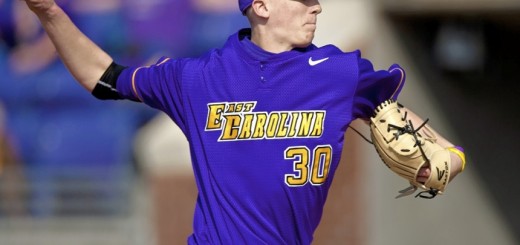Tweet
Boston Red Sox leftfielder Yoenis Cespedes made news when he switched agents, leaving Adam Katz of Wasserman Media Group for Jay-Z’s upstart high profile agency Roc Nation Sports.[1] No one is overly surprised at the change considering Roc Nation’s success in representing high profile baseball clients and their representation of recent Cuban defector and Red Sox centerfielder Rusney Castillo. But is this change best for Cespedes? Although there is little distinction in the capabilities of the top agents at high profile agencies like Wasserman and CAA, Cespedes’s initial 4-year contract with the Oakland A’s was sheer brilliance.
Since the adoption of the latest Collective Bargaining Agreement (CBA) between MLB and the Players Association in 2011, a majority of established players coming over from Japan or Cuba have signed contracts providing club control for at least six years.
| Player | Signing Team | Original Country | Length | Total Value |
| Yoenis Cespedes | A’s | Cuba | 4 years | $36 MM |
| Yu Darvish | Rangers | Japan | 6 Years | $56 MM |
| Yasiel Puig | Dodgers | Cuba | 7 Years | $42 MM |
| Jorge Soler | Cubs | Cuba | 9 Years | $30 MM |
| Jose Abreu | White Sox | Cuba | 6 Years | $68 MM |
| Masahiro Tanaka | Yankees | Japan | 7 Years | $155 MM |
| Rusney Castillo | Red Sox | Cuba | 7 Years | $72.5 MM |
| Alex Guerero | Dodgers | Cuba | 4 years | $28 MM |
| Erisbel Arruebarrena | Dodgers | Cuba | 5 Years | $25 MM |
Presumably, the reason for lengthy contracts is to ensure club control of established international players. However, clubs maintain control of players until they have accrued 6 years of Major League service making extended contracts for proven international players unnecessary. Generally, players with 3+ years of Major League service without negotiated contracts have their salaries set through arbitration.[2] Given their recent success, international players with contracts for less than 6 years would undoubtedly receive substantial salaries through the arbitration process. If clubs pursued a strategy of signing international players to shorter term contracts in order to lower their long-term exposure, they run the risk of setting dangerous precedents for salaries awarded through arbitration. This holds true because the arbitration process awards salaries based on contracts for comparable performance.
The possibility of precedential salaries becomes even more apparent when the Maximum Salary Cut Rule under Article VI, Section (B)(a) of the MLB CBA is examined. The Maximum Salary Cut Rule prevents any player who has yet to reach free agency and is still held “under reserve” from having his salary reduced by more than 20%.[3] For instance, Yoenis Cespedes’s contract calls for him to earn $10.5 MM in the fourth and final year of his deal, which would make him eligible for arbitration for two additional years if allowed by his contract – it’s not but I’ll cover that below. If Cespedes had an unremarkable season under the fourth year of his contract, the lowest salary he could earn the following year is $8.4 MM – a 20% reduction of $2.1 MM. Moving forward, another hitter with similar statistics in his fourth Major League season would use Cespedes’s hypothetical arbitration award of at least $8.4 MM to drive-up his own salary.
After defecting from Cuba, Cespedes signed a 4-year $36 MM contract with the Athletics prior to the 2012 season and was then traded to the Red Sox during this season. After the expiration of his contract, the Red Sox would ordinarily retain his rights for another two years and then have the ability to attach a Qualifying Offer to limit his appeal in free agency. However, Cespedes’s initial agent Adam Katz took advantage of Major League Baseball’s reserve system to extricate Cespedes from two extra years of team control. At the end of the season every player on a team’s roster that isn’t signed to a definite contract or eligible for free agency must technically be tendered a one-year contract every offseason per the CBA. When a player isn’t extended a contract he is ‘non-tendered’ and becomes a free agent. When Katz negotiated Cespdes’s contract he included a clause preventing the club from offering him a one-year contract – resulting in the Red Sox non-tendering Cespedes after next season.
The question has also arisen as to whether the Red Sox could extend Cespedes a Qualifying Offer after next season. Fangraphs’ David Cameron reported via twitter that Cespedes would be ineligible for a Qualifying Offer. Here’s why – Per Article XX, Section (B) of the CBA, Qualifying Offers can only be extended to players who reach free agency after having been constrained under the Reserve System to their clubs for six years of Major League service. Since Cespedes obtained free agency through a non-tender he is not eligible for a Qualifying Offer.
Another way to look at it is by non-tendering a player, either by contractual requirement or deciding he’s not worth a roster spot or potential salary, a team is actively cutting ties with that player and cannot then extend a Qualifying Offer that will provide compensation if another club signs him. Whereas when a team’s 6 years of control over a player expires, the team can then use the Qualifying Offer to protect its investment in that player if he signs with another club.
By initially signing only a 4-year deal with the A’s, Yoenis Cespedes gambled on himself. That gamble will pay off, as he is due to be one of the few power hitters in their prime to enter the free agent market after the 2015 season. Shortly before Cespedes signed his contract with A’s, the Players Association and MLB agreed to the current CBA. The non-tender language in contracts has been used previously to avoid arbitration, but Adam Katz also used it to avoid the damaging effects of the Qualifying Offer. Cespedes’s reasons for switching agencies are his own, but if he thinks he’s getting a better advocate with Roc Nation he should look at his current contract.
[1] Roc Nation is not a totally independent sports representation firm as it is aligned with CAA Sports. Brodie Van Wagenen, who heads CAA’s baseball division, has been the lead negotiator for Roc Nation’s baseball clients and will handle Cespedes’s contract status.
[2] Players who reach a certain service time threshold prior to reaching three years of service are eligible for salary arbitration under Super-Two status. This threshold changes each season and is determined from a group of players with less than 3 yeas of service who played in at least 86 games and rank in the top 22% of those players.
[3] The Maximum Salary Cut Rule also prevents a player’s salary from being reduced by more than 30% of his earnings two seasons prior.



Recent Comments